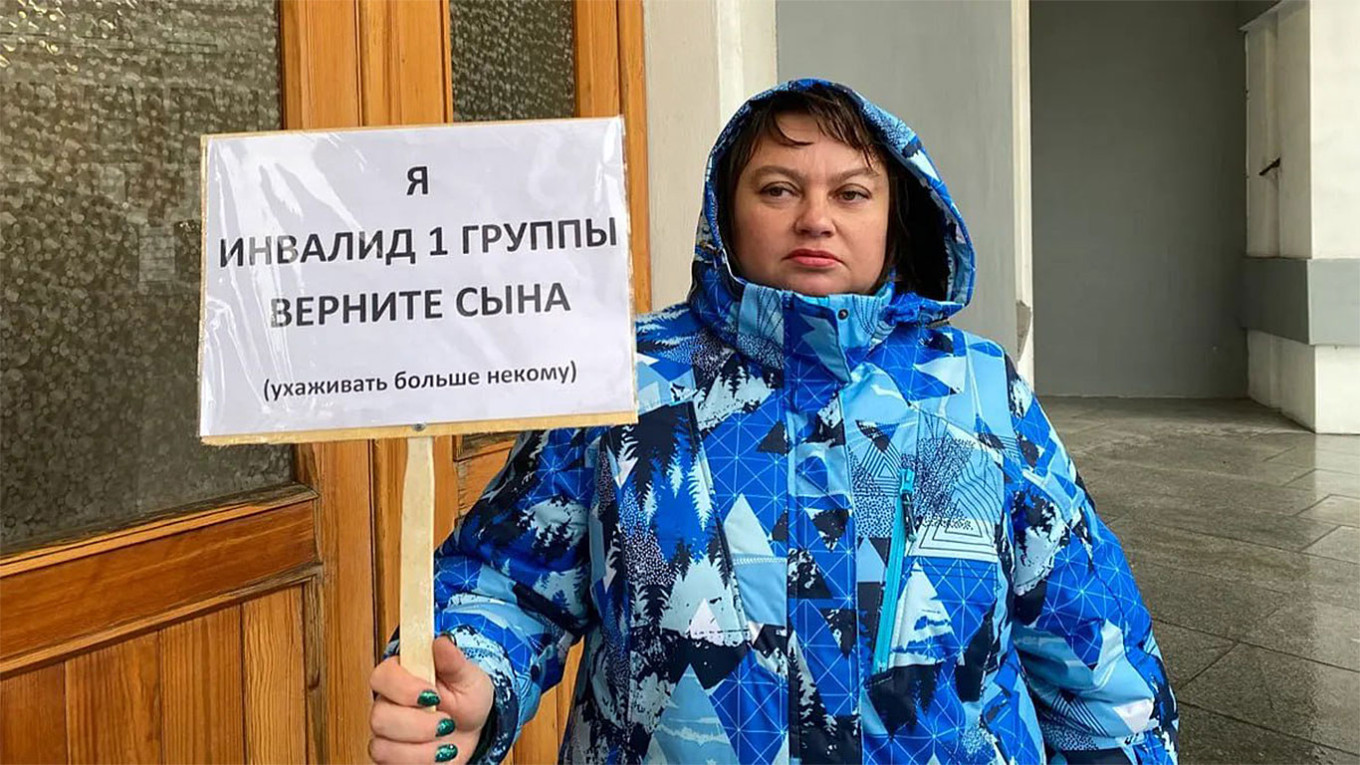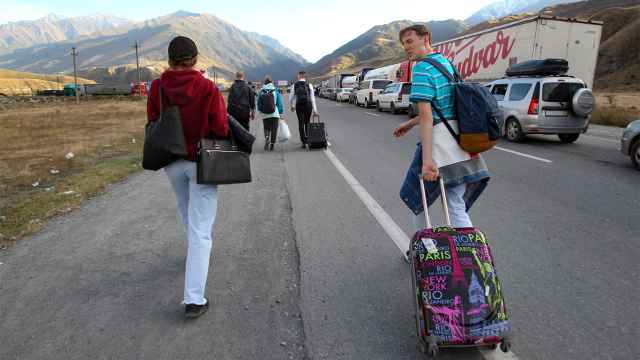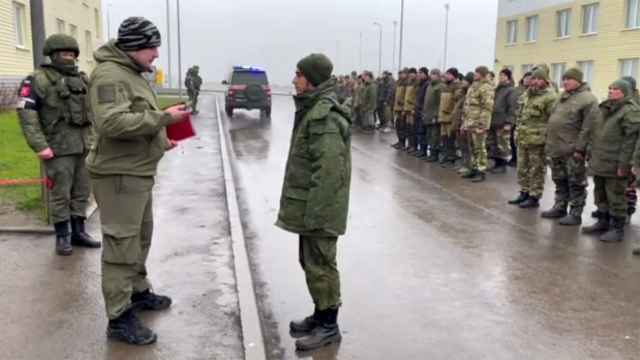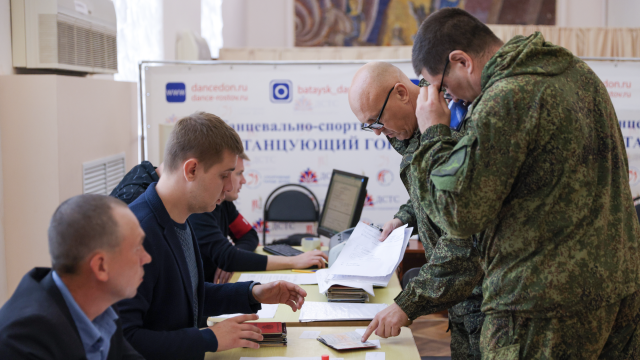Wives and mothers of Russian soldiers who have been mobilized for the war in Ukraine are facing restrictions and intimidation as they demand to bring their loved ones back from the front.
On Sunday, a group of women held an anti-mobilization protest in the Siberian city of Novosibirsk, the independent news outlet Vyorstka reported. Similar protests planned in Moscow and St. Petersburg were denied authorization this month, but around 30 women managed to stage a short picket in the Russian capital.
This month, female relatives of the soldiers sent to Ukraine in President Vladimir Putin’s "partial" mobilization of 300,000 last year published an appeal on the Put’ Domoi (‘Way Home’) Telegram channel demanding “a complete demobilization.”
“Civilians should not take part in hostilities,” the statement said.
“We do not impose political choices regarding power or attitude towards the armed conflict in Ukraine. Everyone has the right to decide for themselves. However, we will support the one who returns our men to us,” it said. “We are determined to get our men back at any cost.”
In the city of Chelyabinsk, local authorities suggested that wives of mobilized soldiers meet with military registration and enlistment office staff, as well as the local “Combat Brotherhood” organization, instead of holding an anti-mobilization protest, the 7x7 media outlet reported this month.
Several women who were active in Telegram chats where the anti-mobilization protests were organized were also visited by police officers.
According to the investigative news website IStories, police visited the homes of at least six women in the Kemerovo region, warning them about responsibility for participating in unauthorized protests.
"Apparently, they decided to nip it in the bud in case we go to an unauthorized rally, since the sanctioned one was refused," one woman told IStories, adding that she doesn't know how police officers found the women since their phone numbers were hidden.
In the Krasnoyarsk region, police officers were pressuring relatives of mobilized soldiers, IStories said.
“They come to those who were in favor of the rallies and call them with a warning about responsibility for extremism. We no longer have the right to even think about the rally, they will immediately write us down as enemies of the people,” one of the relatives from the Krasnoyarsk region told IStories.
A wife of a Russian mobilized soldier this month told the Govorit NeMoskva media outlet that she had been receiving messages that some soldiers “stick their arms out of the trenches in order to get wounded and simply rest.”
“Some write: ‘I'm so tired. Let something strike at us as soon as possible’,” she said on condition of anonymity.
“This movement is not for rotation [of the troops], but for demobilization. We believe that those who have been mobilized should be dismissed from service in the Armed Forces,” she said.
At least 4,401 Russian mobilized soldiers have been confirmed killed in Ukraine, the independent news outlet Mediazona reported. In total, Russia’s verifiable death toll now stands at more than 37,000, Mediazona said.
Mobilized reservists have appeared to endure quick losses in Ukraine, according to an investigation published in September by IStories and the war-monitoring project Conflict Intelligence Team (CIT).
Only four of the mobilized soldiers who died in the conflict lasted more than 11 months before being killed, the investigation said.
A Message from The Moscow Times:
Dear readers,
We are facing unprecedented challenges. Russia's Prosecutor General's Office has designated The Moscow Times as an "undesirable" organization, criminalizing our work and putting our staff at risk of prosecution. This follows our earlier unjust labeling as a "foreign agent."
These actions are direct attempts to silence independent journalism in Russia. The authorities claim our work "discredits the decisions of the Russian leadership." We see things differently: we strive to provide accurate, unbiased reporting on Russia.
We, the journalists of The Moscow Times, refuse to be silenced. But to continue our work, we need your help.
Your support, no matter how small, makes a world of difference. If you can, please support us monthly starting from just $2. It's quick to set up, and every contribution makes a significant impact.
By supporting The Moscow Times, you're defending open, independent journalism in the face of repression. Thank you for standing with us.
Remind me later.






